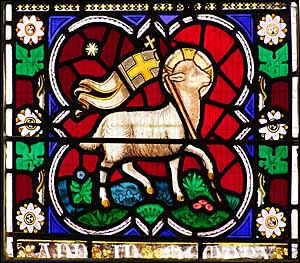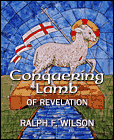Free E-Mail
Bible Studies
Beginning the Journey (for new Christians). en Español
Old Testament
Abraham
Jacob
Moses
Joshua
Gideon
David, Life of
Elijah
Psalms
Solomon
Songs of Ascent (Ps 120-135)
Isaiah
Advent/Messianic Scriptures
Daniel
Rebuild & Renew: Post-Exilic Books
Gospels
Christmas Incarnation
(Mt, Lk)
Sermon on the Mount
(Mt 5-7)
Mark
Luke's
Gospel
John's Gospel
7 Last Words of Christ
Parables
Jesus and the Kingdom
Resurrection
Apostle Peter
Acts
The Early Church
(Acts 1-12)
Apostle Paul
(Acts 12-28)
Paul's Epistles
Christ Powered Life (Rom 5-8)
1 Corinthians
2 Corinthians
Galatians
Ephesians
Vision for Church
(Eph)
Philippians
Colossians,
Philemon
1
& 2 Thessalonians
1 & 2 Timothy,
Titus
General Epistles
Hebrews
James
1 Peter
2 Peter, Jude
1, 2, and 3 John
Revelation
Revelation
Conquering Lamb of Revelation
Topical
Glorious Kingdom, The
Grace
Great Prayers
Holy Spirit, Disciple's Guide
Humility
Lamb of God
Listening for God's Voice
Lord's Supper
Names of God
Names of Jesus
Christian Art
About Us
Podcasts
Contact Us
Dr. Wilson's Books
Donations
Watercolors
Sitemap
Day 6. Worthy Is the Lamb (Revelation 5:11-14)
 Lamb of God, stained glass St Andrew, Whittlesey, Cambridgeshire, England. |
Yesterday we examined the new song sung before the throne to the Lamb.
"Worthy are you to take the scroll and to open
its seals,
for you were slain, and by your blood you ransomed people for God
from every tribe and language and people and nation...." (Revelation 5:9)
But now the praise intensifies, with millions and millions of angels joining in with loud voices.16
"11 Then I looked, and I heard around the throne and the living creatures and the elders the voice of many angels, numbering myriads of myriads and thousands of thousands, 12 saying with a loud voice...." (Revelation 5:11-12a)
The sound must have been deafening, like a football stadium at full volume where you can't hear the voice of the person next to you for the shouting at the team's touchdown.
Ascribing Worthiness to the Lamb (Revelation 5:12b)
Indeed, millions of angels at full volume are shouting:
"Worthy is the Lamb who was slain,
to receive power and wealth and wisdom and might
and honor and glory and blessing!" (Revelation 5:12b)
Previously, those around the throne acknowledge that the Lamb is worthy to take the scroll and open its seals -- that is, to look into and execute the events of the time of the End.
But the angels extend this. The Lamb is worthy of every power, blessing, and honor -- even the blessings that are given exclusively to God. For, lo, the Lamb is divine! These signs of the Lamb's worthiness are seven-fold -- that is, the Lamb is worthy of everything, of all. There is no thing of which he is not worthy!
- Power (dynamis) -- "power, might, strength, force, capability."17
- Wealth (ploutos) -- "a wealth, abundance."18
- Wisdom (sophia) -- "the capacity to understand and function in accordance with that understanding, wisdom."19
- Might (ischys) -- "capability to function effectively, strength, power, might."20
- Honor (timē) -- "manifestation of esteem, honor, reverence," here, "the respect that one enjoys, honor as a possession."21
- Glory (doxa) -- "honor as enhancement or recognition of status or performance, fame, recognition, renown, honor, prestige."22
- Blessing (eulogia) -- "praise."23
Ascribe to the Lord the Glory Due His Name (Psalm 29:1)
This kind of praise -- attributing to Jesus all his greatness -- is noteworthy, though not unique. You see it several times in the Old Testament.24 For example,
"Ascribe to the LORD, O heavenly beings,
ascribe to the LORD glory and strength.
Ascribe to the LORD the glory due his name;
worship the LORD in the splendor of holiness." (Psalm 29:1-2)
In Psalm 29, heavenly beings are commanded to "ascribe to" (ESV, NIV, NRSV) or "give unto" (KJV) Yahweh two attributes of his being -- glory and strength. And then goes on to suggest that the glory is "due his name" -- that is, glory is part of who he is, inherent in his being, so we must acknowledge it! Part of our praise is to echo back to God our praise of who he is, to bear this attribution of his greatness to him as a gift of our love and reverence.25 When we offer this kind of praise, we publicly and vocally acknowledge God's greatness.
All Creatures Praise the Lamb (Revelation 5:13)
First, John hears the twenty-four elders and the four living creatures praise him. Then he hears millions and millions of angels praise him. Now John hears every created being praise him,
"And I heard every creature in heaven and on earth and under the earth and in the sea, and all that is in them, saying,
'To him who sits on the
throne
and to the Lamb
be blessing and honor and glory and might
forever and ever!'" (Revelation 5:13)
Notice that these words of praise and attribution are to both the One who sits on the throne and to the Lamb, to both the Father and the Son. The Lamb is not seen on a lower level, but on the same level, and is worthy of the same praise as God the Father.
This praise is similar to the seven-fold acknowledgement and praise of divine attributes that we saw in verse 12. The first three were mentioned in verse 12, but the last is new -- "might" (kratos).
- Blessing (eulogia).
- Honor (timē).
- Glory (doxa).
- Might (kratos) -- "might," especially here, "exercise of ruling ability, power, rule, sovereignty."26
Notice that in verse 13, not just heavenly beings worship the Lamb, but every created being. Perhaps this is the occasion Paul writes about when he says,
"Therefore God exalted him to the highest place
and gave him the name that is above every name,
that at the name of Jesus every knee should bow,
in heaven and on earth and under the earth,
and every tongue confess that Jesus Christ is Lord,
to the glory of God the Father." (Philippians 2:9-11)
Worship around the Throne (Revelation 5:14)
Our passage concludes with worship around the throne.
"And the four living creatures said, 'Amen!'
and the elders fell down and worshiped." (Revelation 5:14)
"Amen" comes from the Hebrew ʾāmēn, "verily, truly, amen." It is used in the Old Testament to express affirmation in response to what is said, notably after words of praise to God.27 This is a holy time, and the twenty-four elders prostrate themselves in humility before the Lamb and worship. While kneeling is a common prayer posture signifying humility, the very Hebrew verb "to worship" means "to prostrate oneself on the ground, do obeisance."28 Similar to our passage in Revelation, in Nehemiah 8:6 both the affirmation "Amen" and prostration to the ground occur together.
Worshipping the Lord in our Private Devotions
What can we learn about worship from this passage? Several things.
- In heaven, worship is the norm and isn't rushed through.
- Shouting praise with a loud voice is good. Just silent praise can be restraining. So when you are alone, feel free to shout to the Lord -- perhaps in your car or on a walk. If you've never done this, get alone and try it!
- Prostrating yourself before the Lord is an act of deep reverence and humility. Have you ever taken this posture before the Lord?
- Ascribing to the Lord the attributes of glory, power, praise-worthiness, might, etc. is something you might try, as well. I often begin my prayer time with the phrase, "Lord, I come before you this day with praise and glory and blessing," part of my offering to him. Try something like this, or read a praise-psalm out loud before him.
 Available in PDF, and Kindle formats, |
I recall Psalm 149:
Let the godly exult in glory;
let them sing for joy on their beds.
Let the high praises of God be in their throats." (Psalm 149:5-6a)
Prayer
Lord, teach us to offer high praises to you -- not just our tired, quiet, "thoughts and prayers." Teach us how to bring before you praise worthy of your great Worth. Stretch us, invigorate us afresh with praise. Thank you that we have so much to praise you for, and that you are more than worthy of our praise. In Jesus' name, we pray. Amen.
Day 6 Meditation (Revelation 5:11-14). Why don't you
allow God to stretch you today by offering loud shouts of praise, praise that
enumerates the Lamb's attributes and worthiness. And as you speak these
things, meditate on what you are saying. Have you done this yet today?
https://www.joyfulheart.com/forums/topic/1880-day-6-worthy/
Endnotes
(References and Abbreviations)
[16] "Myriads" is the plural of myrias, literally a group of 10,000, myriad. Here the plural and multiplication -- myriads of myriads, or 10,000 times 10,000 -- indicates a very large number, not precisely defined. We might say "countless thousands" (millions upon millions) (BDAG 661). "Thousand" is chilias, "a group of a thousand." Thousands times thousands, is, of course, a huge, undefined number also (BDAG 1085).
[17] Dynamis, BDAG 262, 1a. As a synonym of similar words, such as ischys, dynamis emphasizes "power," natural ability, general and inherent" (Thayer 159).
[18] Ploutos, BDAG 832, 2.
[19] Sophia, BDAG 934, 1bβℵ.
[20] Ischys, BDAG 484. Ischys, a synonym of dynamis, emphasizes "strength, power (especially physical) as an endowment" (Thayer, 160).
[21] Timē, BDAG 1005, 2b.
[22] Doxa, BDAG 257, 3.
[23] Eulogia, BDAG 408, 1.
[24] Deuteronomy 32:3; Psalm 29:1-2; 68:34; 96:7-8; 1 Chronicles 16:28-29.
[25] The verb is the Qal imperative of yāhab, "give, ascribe." The Septuagint translations of the Hebrew word with the Greek verb pherō ("bring, present, bear") suggest the idea of bringing or bearing before Yahweh such an ascription of glory and greatness as one might bear a burden or a gift (Paul R. Gilchrist, TWOT #849); cf. hab, "give" (Holladay, 76, 1).
[26] Kratos, BDAG 565, 3.
[27] ʾĀmēn derives from the Hebrew verb ʾāman, to confirm, support, uphold (Qal); to be established, be faithful (Niphal); to be certain, i.e. to believe in (Hiphil) (Jack B. Scott, TWOT #116b). The name of the capital of Jordan, Amman, is related to this verb.
[28] Hāw, "worship, prostrate oneself" appears in the Histafal stem (Holladay, 97a) or perhaps the Eshtaphal stem (Edwin Yamauchi, TWOT #619) 170 times in the Old Testament.
Copyright © 2025, Ralph F. Wilson. <pastor![]() joyfulheart.com> All rights reserved. A single copy of this article is free. Do not put this on a website. See legal, copyright, and reprint information.
joyfulheart.com> All rights reserved. A single copy of this article is free. Do not put this on a website. See legal, copyright, and reprint information.

|

|
In-depth Bible study books
You can purchase one of Dr. Wilson's complete Bible studies in PDF, Kindle, or paperback format -- currently 48 books in the JesusWalk Bible Study Series.
Old Testament- Abraham, Faith of
- Jacob, Life of
- Moses the Reluctant Leader
- Joshua
- Gideon
- David, Life of
- Elijah
- Psalms
- Solomon
- Songs of Ascent (Psalms 120-134)
- Isaiah
- 28 Advent Scriptures (Messianic)
- Daniel
- Rebuild & Renew: Post-Exilic Books
Gospels
- Christmas Incarnation (Mt, Lk)
- Sermon on the Mount (Mt 5-7)
- Luke's Gospel
- John's Gospel
- Seven Last Words of Christ
- Parables
- Jesus and the Kingdom of God
- Resurrection and Easter Faith
- Apostle Peter
Acts
Pauline Epistles
- Romans 5-8 (Christ-Powered Life)
- 1 Corinthians
- 2 Corinthians
- Galatians
- Ephesians
- Philippians
- Colossians, Philemon
- 1 & 2 Thessalonians
- 1 &2 Timothy, Titus
General Epistles
Revelation
Topical
